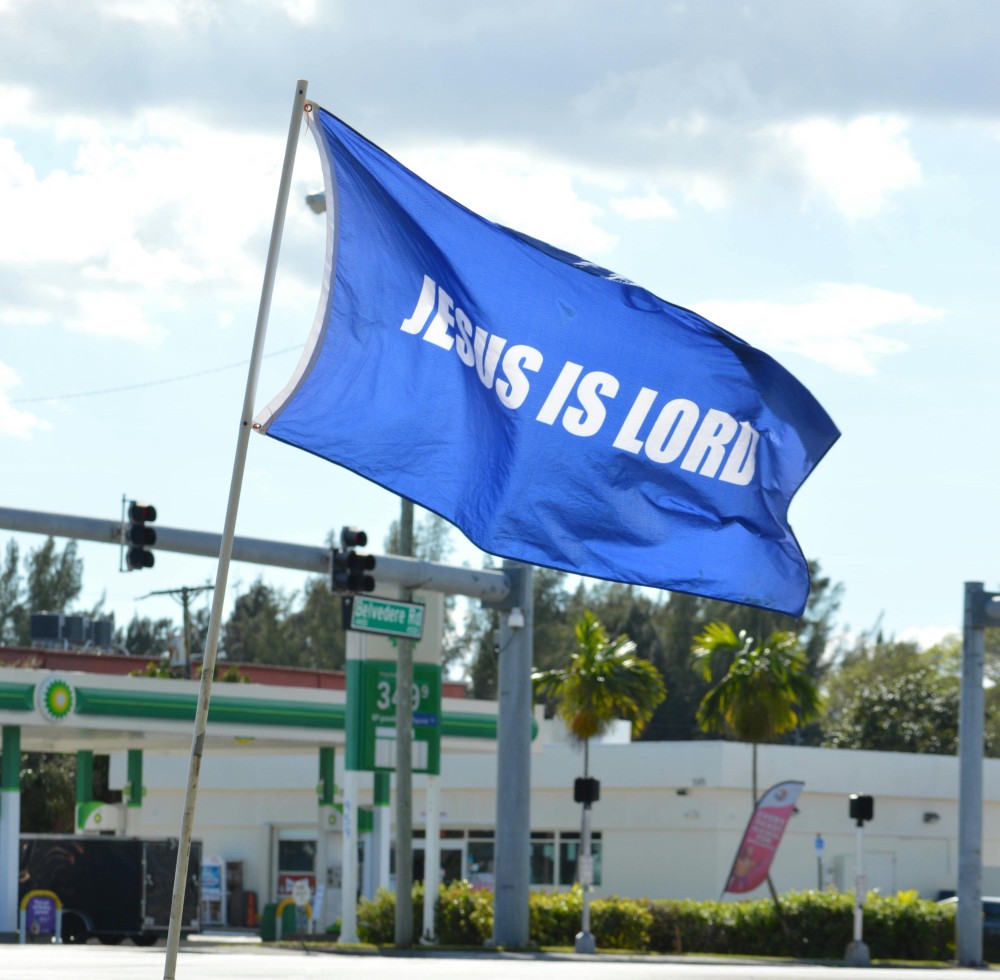Jesus is Lord. No political leader is.
Maybe the kingdom of God isn’t like a king—maybe it’s like those who resist a king.

Last month, “Jesus is Lord” and “Christ is King” emerged as slogans in the US election campaign when anti-abortion protesters shouted the phrases at Kamala Harris while she was speaking about abortion. “You’re at the wrong rally,” the vice president responded to the university students. Immediately “Jesus is Lord” became a wedge issue in the presidential race. Many conservative Christian voters got #JesusIsLord to trend on social media, and JD Vance, now the vice president-elect, even said it from the campaign trail.
The point of this whole exercise wasn’t to echo early Christian rhetoric and proclaim the rule of God. It seems clear that the point was to remind everyone that Republicans are the “Jesus is Lord” people, the voters who are unashamed to acknowledge their Christianity loudly and in public. The slogan has become something of a litmus test for being both a Christian and a Trump supporter. Like going out of your way to respond to “Happy holidays” with a loud “Merry Christmas,” the proclamation is shorthand for announcing which side of the culture war you’re on. And to some Christians, Trump’s victory proves that they signed up for the right side of the battle.
Lordship and kingship, of course, are problematic terms. To be lord is to be master, which is to be superior in respect to one’s subjects. In an age when power is so damagingly wielded against one’s enemies, it’s dangerous to bring lord into political discussions.




